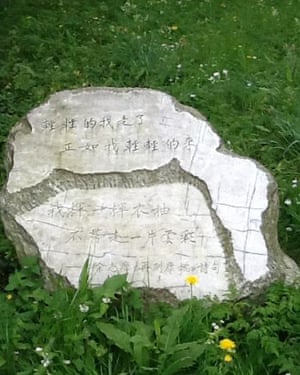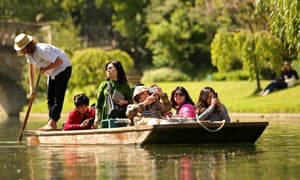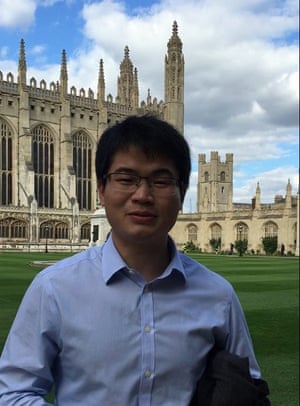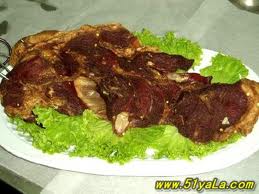Headmasters at some leading private schools have told The Daily Telegraph that some of their foreign pupils were being offered places with lower entry requirements than their British counterparts.
Following concerns raised by academics and schools, undercover reporters visited Golden Arrows Consulting in Beijing, which placed more than 2,500 students in British universities last year, purporting to being looking for a place for a Chinese student.
The firm is the official agent for more than 20 British universities and acts as their representative in China.
The fictitious student was said to have achieved three C grades at A-level – far below the entry requirements of most leading British universities. However, they were offered a place at both Cardiff and Sussex.
The agent, Fiona Wang said: “We send student [sic] to Cardiff Business School to study accounting and finance with ACD. So with CCC we can help her”.
An applicant would normally need AAB to study this subject at the university, so the reporter asked again about the potential offer.
“If the student wants to study economics, it’s three Cs. So economics she can also do”, the agent replied.
When the undercover reporters asked what universities the student could go to if they re-sat their exams and managed to obtain three grades Bs at A-level, Ms Wang explained that those grades would mean that as well as Cardiff and Sussex, she could “choose” between the University of East Anglia or Southampton University.
“Even some high ranking universities, but not Bristol, not KCL [King’s College London], not Warwick”.
The undercover reporters were referred to another employee of Golden Arrow who offered to doctor documents to help the student’s application, including paperwork required to obtain a visa to study in Britain. Assistance with the personal statement that each student is required to fill in was also available.
Universities are able to make discretionary offers to students and there are no rules governing entry requirements.
Headmasters at some top private schools confirmed that they were experiencing growing problems with British students facing discrimination.
Many wealthy parents would be prepared to pay the higher fees charged to foreign students but the system bans this from happening.
Andrew Halls, the headmaster of King’s College School in Wimbledon, south-west London, said: “There was a boy this year who told me that he was made an offer dependent on him being a non EU candidate, and when he clarified the fact that he was a UK candidate, even when he appeared not to be, they said that the offer doesn’t stand.
“There are occasions when I have said to a candidate, if you can apply as an international candidate it slightly strengthens your hand.”
He added: “Universities are disincentivised from taking UK candidates. We have to address it.”
Richard Cairns, the headmaster at Brighton College, said: “Universities are increasingly searching for, and needing, overseas fees. It’s something we have noticed. It’s tougher for British students to get into top universities than overseas students… There is a higher offer rate to overseas students.”
A third leading headmaster said he was aware of cases where a pupil had dual nationality and applied to university from abroad with lower grades than would be accepted for a British candidate.
Since 2006, the number of foreign students has risen by a third to almost 300,000. Teenagers from China represent the highest proportion of overseas students. At the same time the number of British students missing out on a university place reached a record high last year of 180,000.
Last month, 68 chancellors, governors and university presidents wrote to the Prime Minister warning that the government’s immigration crackdown should exclude students, to drive the economy and boost university income.
The recruitment of foreign students by overseas agents is big business – almost all university websites have pages dedicated to listing their “partners” in each country for prospective students to contact about obtaining a place. Agencies compete for business with some being paid by both the student and agent.
Professor Alan Smithers, director of the Centre for Education and Employment Research at Buckingham University, said that “money is the main factor” in universities recruiting foreign students.
“The reason universities are recruiting more foreign students, is at its heart, about fees. Universities are business, they have to secure their future, they look at their income streams.
“There is the risk of standards being compromised if the driving force is the extra money these students are bringing in”.
From September the government will remove a cap on the number of British students a university can recruit if the applicant had A, A, B grades at A-level to ensure that high-performing teenagers are not denied places.
Next year the threshold will be lowered to A, B, B, but so far only a handful of universities have said they will participate because of concerns over costs of admitting more UK students.
The Daily Telegraph will expose further issues with the system later this week. The disclosures are expected to lead to demands for a review of entry requirements.
Golden Arrow admitted that it had found a place for a student at Cardiff with A, C and D grades at A-level but insisted this was an exceptional case.
It said it had “never” sent a student to Cardiff University with C, C, C grades, but that lower grades could be accepted during clearing for a number of high ranking universities.
The firm denied offering to doctor visa applications and said that when the agent had offered to write the personal statement for a student, he meant that it could “instruct students how to make a good PS [personal statement], but never write on behalf of them”.
Sussex University said, “We have not offered places on degree courses to international students in the way that you describe… We make no C, C, C offers whatsoever.
“It is possible, however, that during the Ucas clearing process offers may be made at slightly below the advertised entry criteria, but this is unlikely to drop by more than one or two grades.
“Any such offer would be the same for overseas and UK/EU students”
Sussex said that it did not enter clearing last year because of the cap on the number of UK/EU students it can accept and it had met its “limit”, but overseas students were offered places during this period because their numbers are not restricted.
Cardiff University said it was “unlikely” that any student would be offered a place to study with A-level grades C, C, C, but that the university “may vary its typical offer where there are mitigating circumstances or aptitude to study demonstrated by other means”.
It confirmed that in the 2011/12 academic year, 258 of its students applied via Golden Arrow, but said that agents “do not make admissions decisions”.
A spokesman for the University of Southampton said that international students were given the same offers as UK students. It said they would be investigating the allegations.
The University of East Anglia said that no student would be offered a to study maths with grades C, C, C .





 All animals that are grown for meat are raised, trucked and killed with
extreme cruelty. But man has taken unkindness to an art form. Let me
give you a list of the cruelest foods. I am sure I can give you at least
100, but let me start with ten.
All animals that are grown for meat are raised, trucked and killed with
extreme cruelty. But man has taken unkindness to an art form. Let me
give you a list of the cruelest foods. I am sure I can give you at least
100, but let me start with ten.